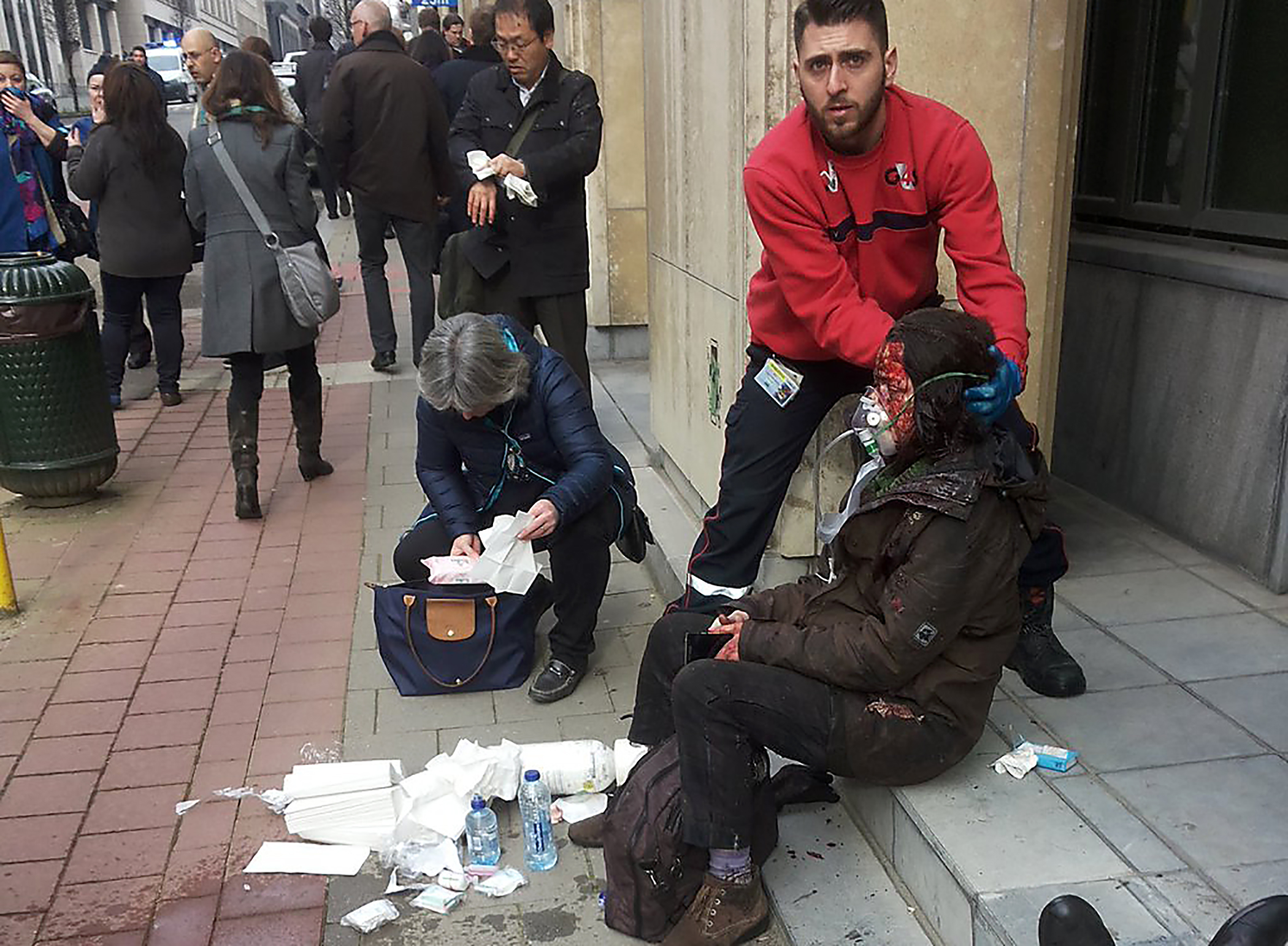We knew it was coming. Belgium had never experienced a massive terrorist attack, and no one believed that was because our police and intelligence services were more skilled than those of Spain, France or the U.K. — not for one second.
It never added up. London, Paris, Madrid, but not Brussels, where there’s so much institutional real estate, with the biggest concentration of lobbyists outside Washington, D.C., with NATO headquartered here. We tried not to give in to the fear-mongering, but in our hearts we knew it was just a matter of time.
On Tuesday, our luck ran out. Terrorists struck at an airport and a metro stop in Brussels, killing dozens and injuring many more.
In the days after the connection between surviving Paris terrorist attack suspect Salah Abdeslam and Brussels' tough Molenbeek section surfaced, I saw Abdeslam everywhere. A man who loudly yelled out something in Arabic was Abdeslam. The young man in the hoodie who quickly walked toward me was Abdeslam, until he turned his face toward me, as if to reassure me, realizing he was being racially profiled. During a lockdown, I saw police officers circle a van, weapons out. They ordered the driver to get out. It had to be Abdeslam; I just knew it.
With Abdeslam at large, like a lot of Brusselaars, I learned to live with an unshakable fear, a gut feeling that we were next.
For a brief few days, it seemed as if we had escaped. When Abdeslam was arrested last Friday, for the first time since the anti-terror raid in Verviers in January, we could breathe again. I imagined this was what Americans must have felt like after Osama bin Laden was tracked down and killed in May 2011. Our secretary of State for asylum and migration, Theo Francken, expertly captured the mood when he tweeted: “We got him.”
A wave of relief washed over us; we started patting each other on the back, unable to suppress the unspoken, quiet hope that maybe we would stop being the butt of a joke we didn’t get ourselves.
And then, just as the knots in our stomachs went away for the first time in months, just as we stopped looking over our shoulders, the terrorists struck.
Few of us admitted it — our officials certainly didn’t — but we have felt guilty toward the French. These were our terrorists. They plotted the Paris attacks from neighborhoods our politicians gave up on a long time ago; they dropped out of our failing schools; they were stripped of our Belgian nationality when they decided to go fight in Syria. And yet we were spared? It was messed up.
Now that we’ve been hit, perhaps we’ll finally get angry, too. We’ll demand answers from our government and intelligence services the way the French have from theirs. We’ll start to agree with the analyses we previously dismissed as “hysterical”: that Belgium is failing; that it doesn’t work, and it’s finally time to admit that. Today, the surrealist structure of our country, our layers and layers of government, is hard to defend anymore. If ever we were whole as a country, today we have fallen apart.
Thompson is a Brussels-based reporter who writes for Associated Reporters Abroad.

![AFP 550277987 I AOT BEL [image : 82126544]](http://www.gannett-cdn.com/media/2016/03/22/USATODAY/USATODAY/635942548089074856-hurt.JPG)

